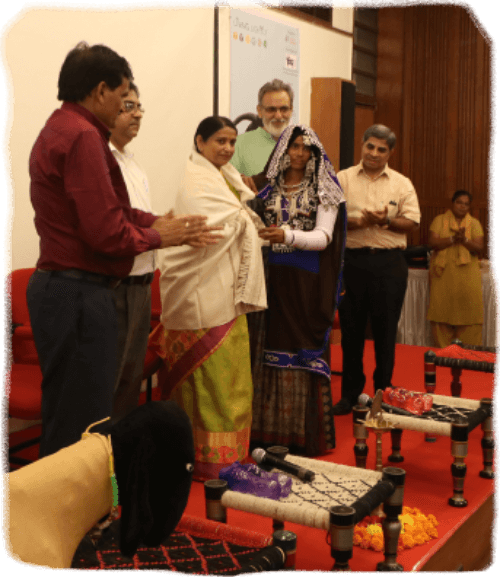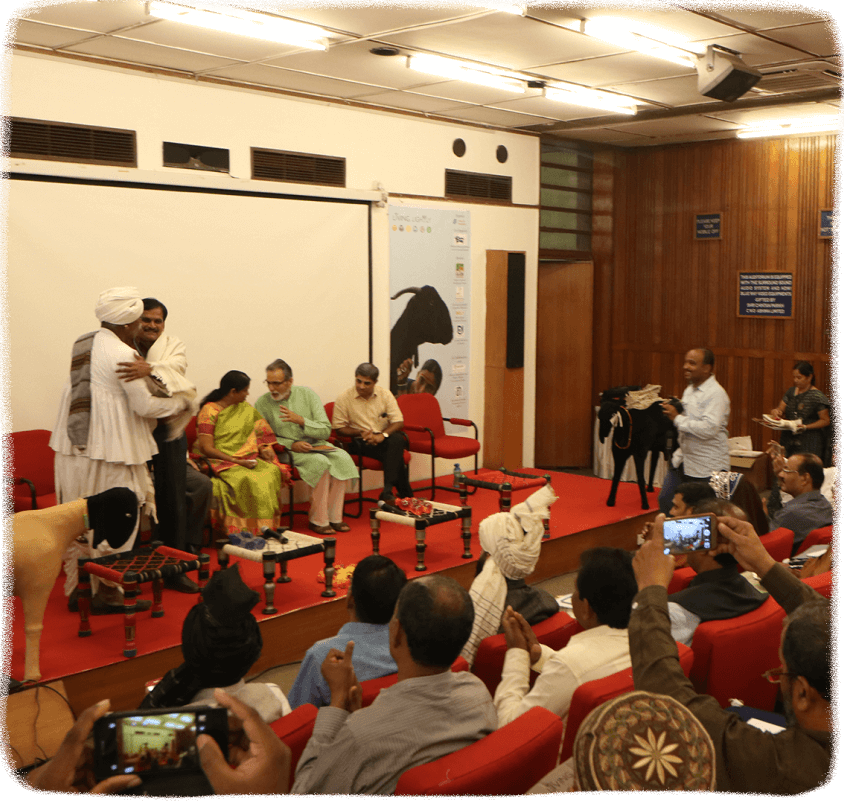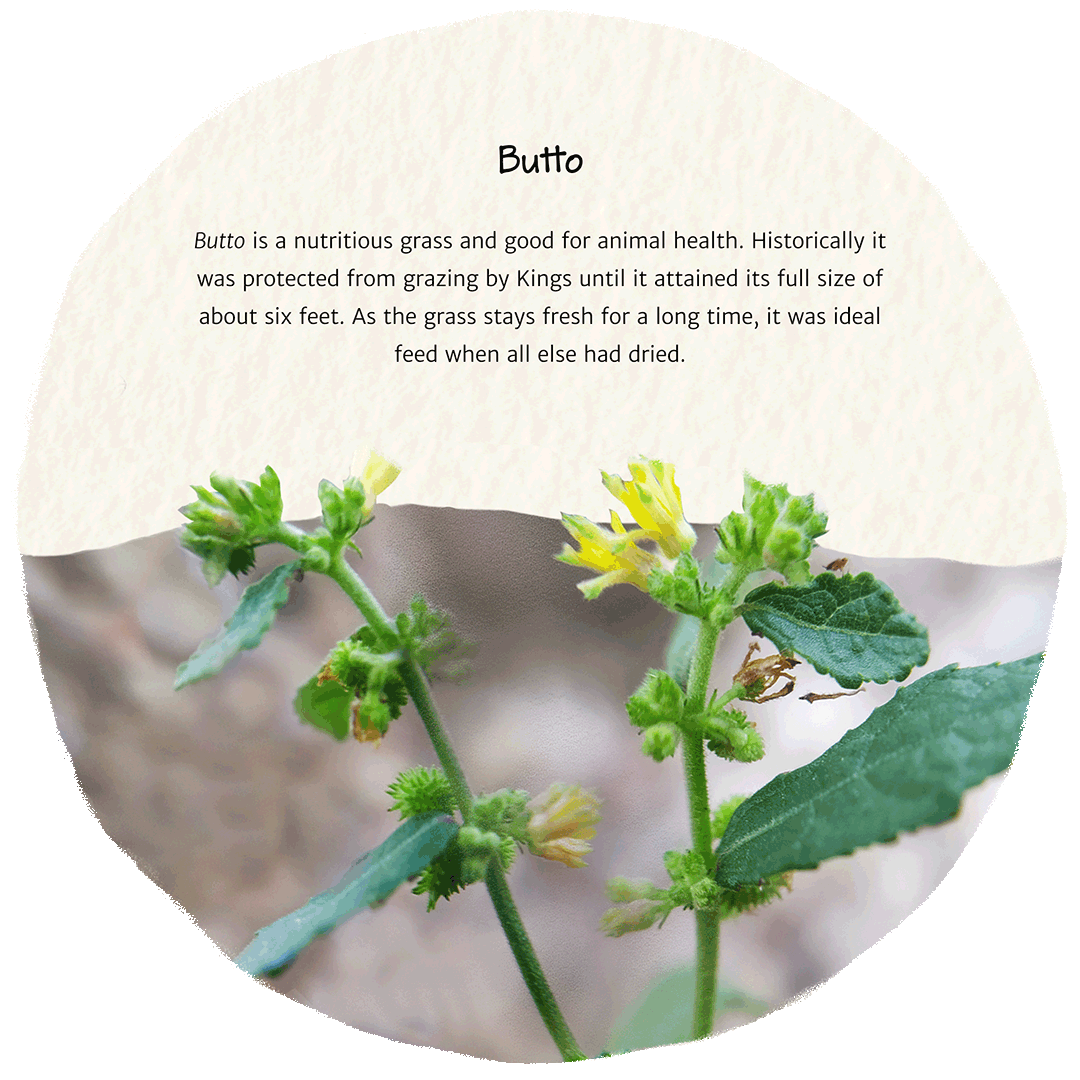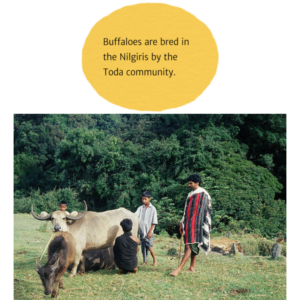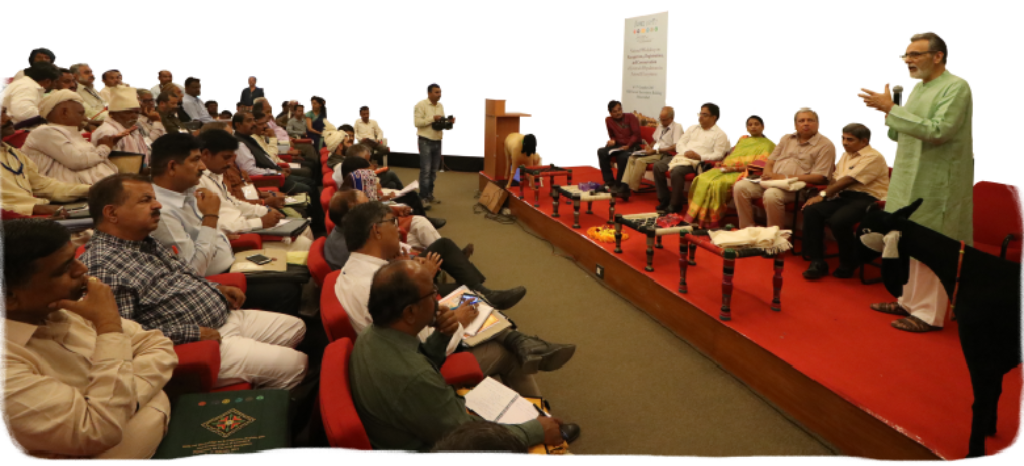
A session at the conference
These include cattle breeds, goats and sheep, ponies, donkeys and so forth – livestock upon which the livelihoods of pastoralist communities are founded. The workshop was a collaborative initiative of the Government of Gujarat, Centre for Pastoralism (CfP) and the National Bureau of Animal Genetic Resources (NBAGR).
The workshop was inaugurated by Smt Krishna Raj, Minister of State for Agriculture and Farmer Welfare, Government of India and was attended by senior officials from the Government of Gujarat, the National Bureau of Animal Genetic Resources, and by animal husbandry departments from many states. Large numbers of representatives of pastoralist communities from across the country were present alongside members of civil society organizations and academics.
Chief Guest Smt. Krishna Raj (then Minister of State, GOI) and Sanjay Prasad being greeted by herders
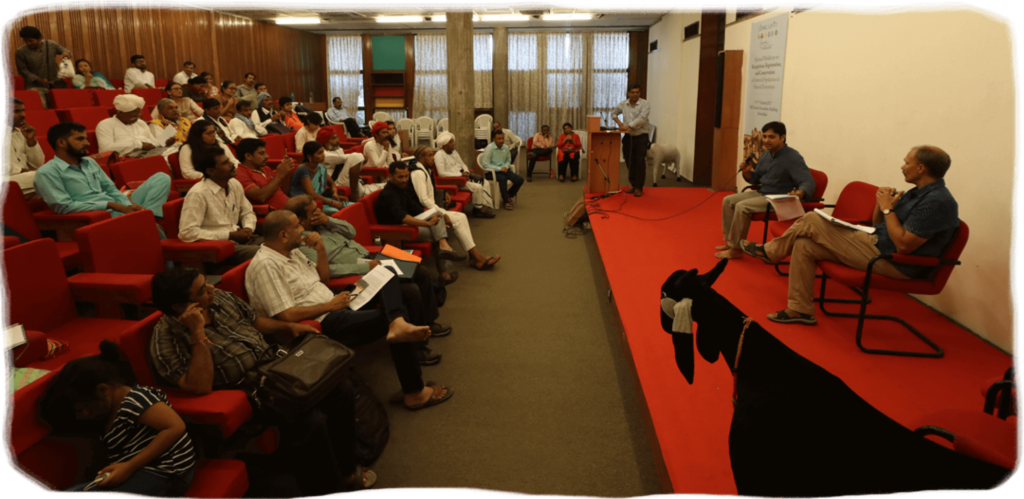
The consultation saw participation from members of academia, government officials, herders and practitioners from regions across India
The consultation was attended by cheese-making entrepreneurs, members of civil society organizations
working with pastoralist communities, and pastoralists themselves. Our discussions revolved primarily around experiences shared by Chris Zandee, of Himalayan Cheese; Apoorva Oza, of the AKRSP, and
Aditya Raghavan, a cheese-making consultant and artisanal cheese enthusiast.
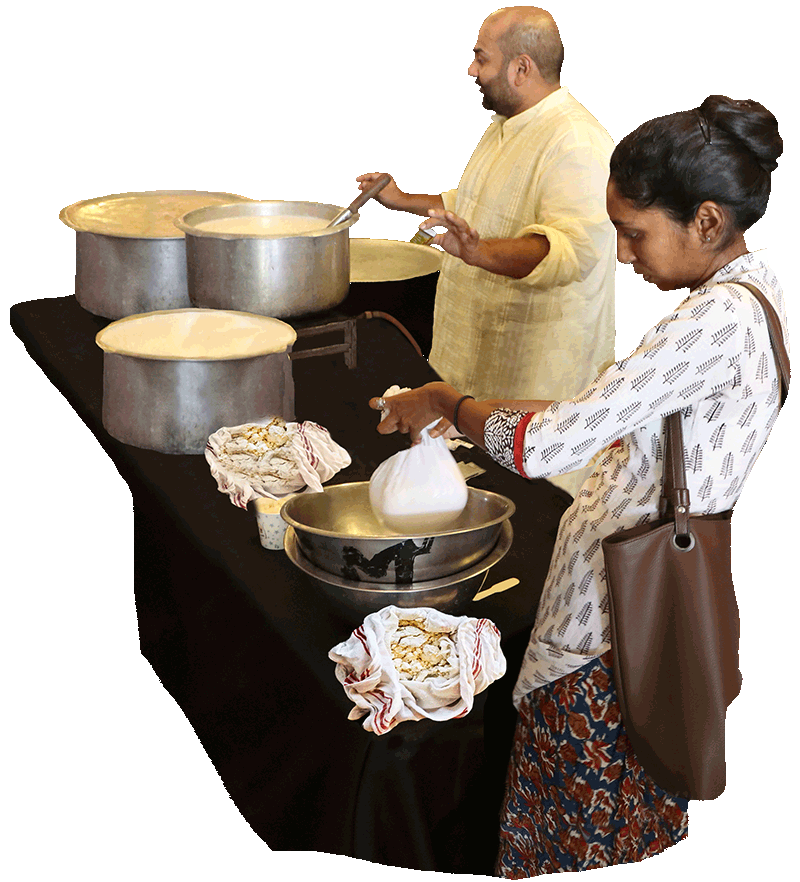
A number of likely challenges associated with the production of goat cheese were highlighted, including the key question of hygiene, the criticality of maintaining optimal temperatures during both production and curing of goat cheese, its relatively short shelf-life, the problem of procuring undiluted goat milk, and the capacity to handle large variations in capital flows.
